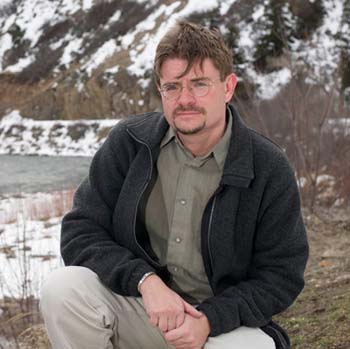
Competitors vie in the 12 Hours of Snowmass mountain bike race. As ski areas like Snowmass Village expand summer offerings, the Forest Service is looking for more authority to permit them. Photo courtesy 12 Hours of Snowmass.
 A bipartisan team of legislators is putting forward a bill intended to make it easier for ski resorts to get permission for non-ski activities on Forest Service land.
A bipartisan team of legislators is putting forward a bill intended to make it easier for ski resorts to get permission for non-ski activities on Forest Service land.
Touted as a job-boosting measure and a way to improve year-round economies at ski resorts, the legislation is aimed particularly at summertime activities. On-mountain activities slow down in the summer, but ski areas are increasingly looking to summer recreation, like hiking, mountain biking and mountain boarding, to bring visitors during warm-weather months.
“You know that the last snowflake doesn’t signal the end of outdoor recreation,” said Sen. Mark Udall, D-Colo., the lead sponsor of the legislation. “Our ski areas shouldn’t have to close shop once the snow stops either.”
Joining Udall are legislators from across the political spectrum: Sen. John Barrasso, R-Wyo., Rep. Diane DeGette, D-Colo., a liberal Democrat famous as a champion of environmental legislation, and Rep. Rob Bishop, R-Utah, a member of the Tea Party Caucus and the conservative Congressional Western Caucus.
“The same mountains and unique geography that draw visitors from around the globe each winter also offer a vast array of off-season recreational opportunities,” Bishop said. “However, outdated laws are prohibiting these areas from offering year-round recreational access.”
The Ski Area Recreation Opportunity Enhancement Act would amend the 1986 rules that govern what activities are allowed on ski areas that use National Forest land. The current laws only specify ski-related activities. Even commonplace activities like snowboarding and hiking aren’t specifically included.
The new bill would make it easier to include non-skiing activities and authorize the Forest Service to decide on summertime activities – things like mountain biking and concerts – to help boost the economies of ski towns when the snow stops.
“As I know well from my days as an outdoor educator and mountain guide, the challenge of providing steady jobs through the shoulder season is significant,” said Udall, a former Outward Bound instructor.
Ski areas have increasingly looked to become year-round destination, in many cases dropping the words “ski area” from their names altogether and replacing them with words like “mountain resort.” They have been expanding their offerings to include mountain coasters, zip lines, mountain bike and mountain coaster courses and concerts.
As those offerings have expanded, the Forest Service began seeking more clarity about its ability to oversee them, said Melanie Mills, president of the industry group Colorado Ski Country USA, which supports the bill.
“The idea of the bill is to leave a significant amount of discretion to the forest service,” Mills said.
The bill would affect 121 ski areas on public land, primarily in the West, including Vail, Colo., Jackson Hole, Wyo., Sun Valley, Idaho and Sunbird, Utah. The bill includes some provisions on activities, like theme parks, that would not be allowed.
In Aspen, Colo., the Aspen Skiing Co. has been gradually increasing its roster of on-mountain activities. That has included yoga hikes, concerts and mountain bike parks with specially-designed terrain features and obstacles.
“The things people like nowadays that actually make it a destination,” said Jeff Hanle, spokesman for the Aspen Skiing Co. “That’s the goal. If you can use on-mountain recreation facilities to spur traffic that otherwise wouldn’t come, people who say ‘I’m going to Snowmass because they have a mountain bike park.’”
With proper planning, initiatives like that haven’t been a problem, Hanle said. But the ski area supports the legislation as a way to streamline the permitting process and bring the laws up to date.
“It eliminates some regulatory hurdles for summer recreation on Forest Service land, but still preserves the core forest values,” he said.

